Saturday, August 8, 2009
Interview with Tennant and RTD
Doctor Who is the longest running sci-fi series in television history and a cultural institution in the UK. The iconic series originally aired on the BBC from 1963 - 1989and ran on over 400 stations in the 1980's.
When award-winning writer Russell T. Davies, the man behind Torchwood and the original Queer as Folk, took over the series, his slick re-imagination put a fresh spin on the adventures of the popular Time Lord and his feisty companions, who travel across the universe to protect Earth from dangerous aliens and terrifying monsters.
Both Davies and the 10th Time Lord, David Tennant, who is one of the UK's best known actors, have decided to end their involvement with Doctor Who with a series of four specials in 2009 and early 2010. At the Television Critics Association Press Tour, the two men talked about what fans can expect from their final specials, along with why working on Doctor Who was such a memorable experience for both of them.
Q: Russell, it's so interesting how different one Doctor is from the next. The 9th Doctor was a very serious fellow, and the 10th Doctor seems to have a bit more of a light touch with it. How did you make the decisions to go with two such very different portrayals of a character that you love?
Russell: It really comes from choosing two different actors. And, hand on heart, I can't say I ever sat there thinking about massive differences between the two Doctors. I always think there's very essential Doctor-ness behind whatever he's saying and doing. I think you can get hung up on adjectives and descriptions, and one-line hooks for characters, then that's all you write. So, I just tend to write in terms of flow. I surf it and see wherever he's going, and just follow the story. I think, if the 9th Doctor did seem harder in places, that's because he was recovering from a war. And, if the 10th Doctor seems lighter, that's because he's getting better in that recovery, and his human companions are making his life different. I tend to think of it in story terms. I don't sit there, thinking of characteristics for the Doctor. You can just depend on character hooks too much, so I just tend to write whatever happens on the spot, really.
Q: When you are transitioning from one Doctor to another, how do you balance the opportunities of changing aspects of the show to reflect the new Doctor?
David: Well, that's not on our watch now, in terms of how they do it after us.
Russell: Yeah. You've just got a different lead actor, but we did not have great big meetings about that. We just carried on. It's such an unusual show because it's different, every week. If it was a very regular precinct show, always in the same place, then the change of lead actor would have enormous repercussions on everyone around it. With Doctor Who, you can do a comedy episode with Agatha Christie. You can do a dark, psychological episode, like that midnight episode. You can have romps. You can have love stories. You can have adventures. Because it's always changing, you don't need to worry too much about the change. We all just hang on for the ride, really.
Q: When it was time to replace Chris Eccleston and find a 10th Doctor, what made David the right guy? And, how did you and he shape the character to be different than his predecessor?
Russell: Well, we were lucky, in that David and I had already worked together. I first met David when we did Casanova for the BBC, and I remember doing rehearsals and making Doctor Who jokes, which amused us. And so, he was already there, in a way. It was just the best possible time. It wasn't set up in advance, like that. But, when you work with or find a great actor, you just cling to them. They're just so limitless and inspiring. And so, when it came to putting it together and writing it, we talked surprisingly little about it, really.
David: He just wrote it. That was it, really. And, I just got the script and did it.
Russell: And, we sort of continued like that. We should have had those meetings where we discussed things, but we didn't, really. I would watch the rushes every day and watch what David was doing.
Q: What was he was doing that you liked?
Russell: With the Casanova audition, I thought, "Oh, my lord, that's someone I want to spend many years working with." Practically every male actor in the land had auditioned for Casanova, to play the world's greatest lover. Everyone came in and gave us very heavy, very serious, would-be romantic portrayals. And, David could just dance over dialogue. He's one of the few actors who understands that dialogue is sort of irrelevant. You throw it away and you rattle across it with real speed because it's about what's going on underneath. He gets the humor and the comedy, and there are not many actors who do that. They take it very seriously. And, I like stuff on the lighter end, no matter how dark the actual stuff is. It has that throw-away quality to it, and I love that.
Q: David, when you signed on to do Doctor Who, did you know how many years you'd be doing it? And, because you were such a fan, did you know what you were going to do with the role?
David: I responded to what was in the script. I tried not to sit down and work out a list of self-conscious quirks because I think it can become cloyingly quirky, in the wrong way. I think idiosyncrasies are better born than imposed, so I just responded to what Russell had written. And then, working with directors like Euros Lyn, we just bumbled through it, really.
Q: Doctor Who has been a staple in the U.K. forever, but the U.S. explosion has been largely due to you guys. What was it like to see that fan reaction at Comic-Con?
David: I wanted to crowd dive, but they were all sitting down. It was a bit disappointing, for me. I figured that was probably the only opportunity in my life that I was going to get to do that. I should have done it.
Russell: It was amazing. That's obviously a very specific crowd, but we do keep getting told back home that it's completely unknown in America. So, we were slightly amazed, in a good way, that we had that response.
David: It was great fun. It was such an extraordinary experience.
Q: The Doctor's assistants have added so much to the show, Billie Piper in particular. Can you talk about picking Billie Piper, and the ones that followed, and how important that is, each time?
Russell: That's just been a vital part of the format, in that you've got a man who's 906 years old, and he's an alien, and he's a Time Lord. He's wonderfully human, but he has that huge other dimension of being practically immortal and hugely wise, which is dangerous. The human person just brings him down to Earth, literally. It's the yin and the yang, the human and the alien, the man and the woman, the boy and the girl. It's just oddly inventive. That's a great classic patent for a series. It just happens that this has got the human and the alien added to it, but so many series have the two male and female leads, for which you explore every story. Maybe it's true to say, in the old days of the series, the companion wasn't quite so well-developed, but that wasn't the purpose then.
Now, in bringing it back to have the female lead to attract people, not just Billie Piper, but of Catherine Tate status, to the series, you've got to write it well, otherwise you're not going to get them. One of the joys of the whole show was to work with people like that. It was just brilliant.
Q: What will the tone of the specials be like?
Russell: Well, The Waters of Mars is one of those claustrophobic, submarine-type dramas, with them all trapped in an enclosed space with increasing darkness and intensity.
David: Planet of the Dead was the last hurrah for the 10th Doctor. He was in mortal danger, but he was loving it. Really, from The Waters of Mars and heading into that final story, the sword of Damocles is dangling, and that informs everything that goes on.
Russell: The finale is a personal epic. The Waters of Mars all takes place in a very small location. And then, that final story becomes epic, almost like a fairytale. But, it's really intimate, at the same time. It's got funny little aliens with green spikey faces, running around.
Q: The Doctor has had pretty steady companions for a few series, and then for the specials the Doctor has been solo with new companions. How was it to shoot those specials? How did that change the dynamic on the set for you?
David: It's been slightly different in each one. In the first one, we had Michelle Ryan who, for all intents and purposes, was the companion, and she was fantastic. Although she was a very distinct character, she was in the mold of the traditional young, beautiful woman, who is also feisty. Bu, in the next special, the closest thing we have to a companion is Lindsey Duncan, who is an older woman, which is not something the show has done before. And, she probably thinks she's more in charge than the Doctor is. In many ways, she is, actually. So, that's a different dynamic. And then, coming into that final two-part story, although Catherine Tate is back and Donna is a big part of that story, the companion really is Bernard Cribbins, and that is the first time the Doctor has had an 80-year-old man as his sidekick.
So, it's been great to get to play these different facets of the character. The Doctor himself is also slightly on the run from himself, and on the run from the inevitable, so he's trying not to get too close to anyone. So, it's important that there is a revolving door of confidence for him. But, getting to see Bernard Cribbins in that final story is so brilliant and moving. He's just such a great actor, and that was a great finish to the story, for me. You get these wonderful scenes of these two old men. The Doctor is a lot older than Wilf, and yet the two of them get to sit down and discuss life in a way that we've never seen the Doctor be able to do before. It's just a way of reinventing the wheel with this character, who has been around since 1963, and yet we are still managing to find a new aspect of him.
Q: After Planet of the Dead, will the remaining episodes all be ramping into the next regeneration? How do you dramatically play a progress towards a death where the character knows not really a death, having been through multiple regenerations?
Russell: Yes, the Doctor is heading for his next adventure, called The Waters of Mars, in November in Britain. It should be shown soon after on BBC America. I think this Doctor likes being this Doctor. He's raging against the dying of the light. And, that's the beat that we play. That's the story. He knows that the sands of time are running out. He's been told. And, the bell is tolling for him, and he doesn't want to go quietly. That's how we play that.
Q: David, why leave now, when it's so big?
David: Sometimes, you have to take a deep breath and make a difficult decision, and I like the fact that I stand a chance of leaving an audience and myself wanting more, rather than people asking when I'm leaving. I never had a definite stepping-off point, but when Russell and Julie were moving on, it seemed like the obvious time. It seemed like a natural end for all of us, really.
Q: Knowing that this is basically the end for you, is it bittersweet?
David: It's so many things, actually. It's very exciting, but it's also very sad. It's thrilling to be handing over the show in such good health, actually. We've all come on this journey together and we're all leaving together. It feels like we're coming to the end of something very special. It's a whole mixture of emotions that probably won't actually transmit for awhile. I don't quite know how it feels. I don't think any of us really do because we're still clinging on, until the shows go out.
Russell: We're happy with a job well done.
Q: Since it is sci-fi and we have seen previous regenerations come back, would you ever come back, even just for a cameo?
David: I'll wait for the correct opportunity, but I've got the costume hanging up in my wardrobe. As long as I can keep my waistline and still fit into the trousers, I'll never say never.
Q: As a fan, who was your favorite Doctor Who star, while you were growing up?
Russell: I was a Tom Baker man, really. I was just the right age. I was 11, going into comprehensive school, and that's when I really, really fell in love with the show. That was the most extraordinary combination of an actor and a part coming together, in just absolute television magic. I loved that very much.
David: Tom Baker and Peter Davison were the two that I grew up with. I think there is something about it, like a chick hatching from an egg. Who you first see is who you imprint on it. But, I've liked them all.
Q: Russell, when you were bringing Doctor Who back, in the very beginning, you brought back some continuity, but decided to get rid of something things, like the Time Lords, so that the Doctor is now the last of his kind. How did you decide what to keep, what to bring back and what to get rid of?
Russell: It's funny because, as a long-term fan of the show, it was like the show had 40 years of market testing. I was a 40-year-old focus group, working on what worked and what didn't, and I never liked the Time Lords. I always thought they were slightly boring and bumped the program down, apart from the one Time Lord, obviously. So, the decision to get rid of the Time Lords was just immediate. It didn't take me a long time to reach that decision. It was on the very first document, and I knew immediately.
Q: David, what are you doing next?
David: Long term, I don't really know. In the immediate future, I've just done a television version of Hamlet, which is broadcasting soon. And, I'm doing a film called 1St. Trinian's 2: The Legend of Fritton's Gold, at the moment. But I don't know, after that.
Posted by Unknown at 11:24 AM
Labels: interveiws
Subscribe to:
Post Comments (Atom)



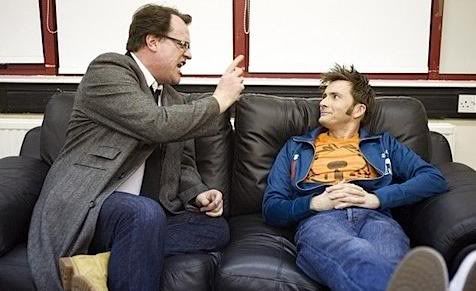
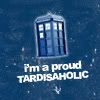
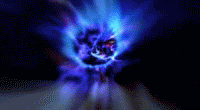





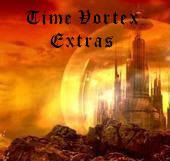
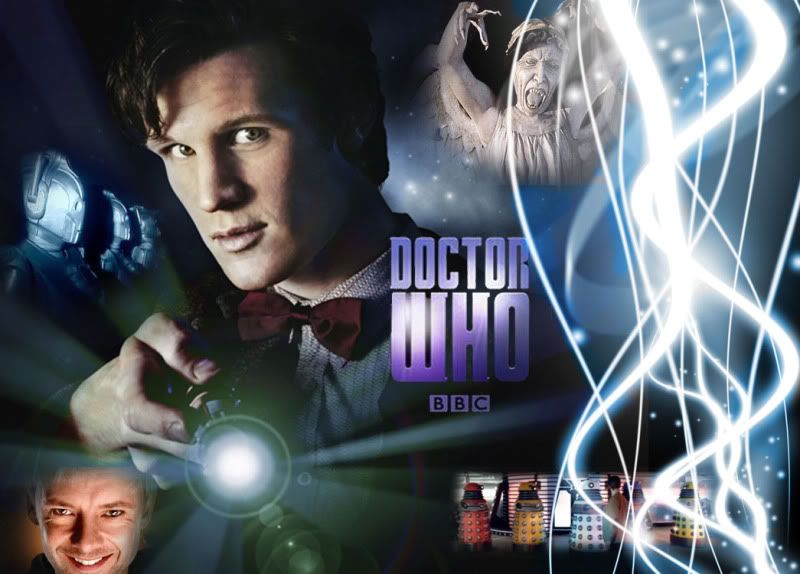
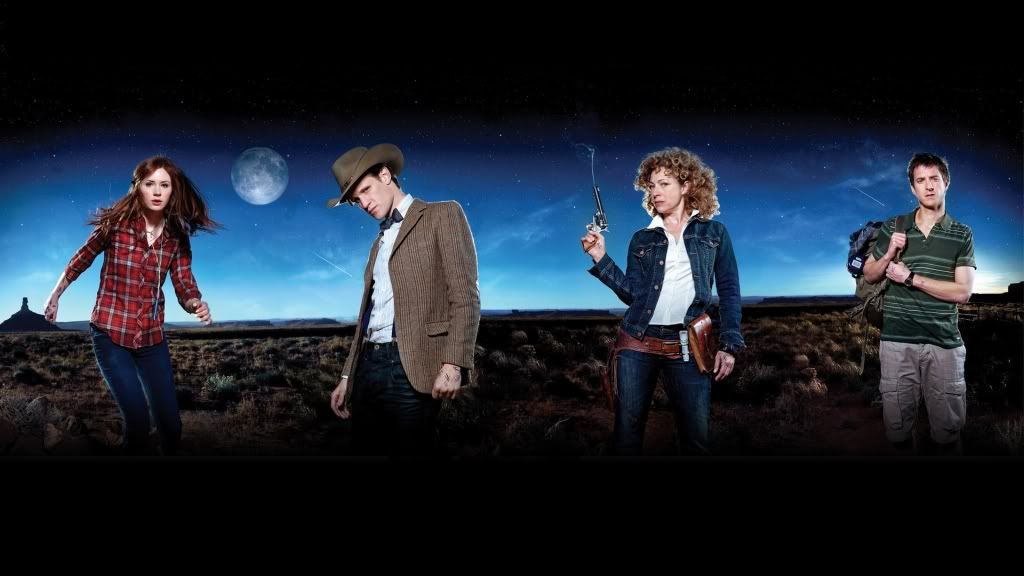
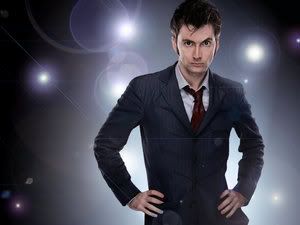

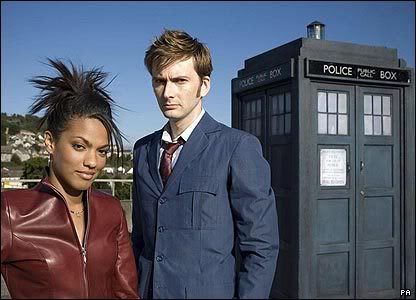
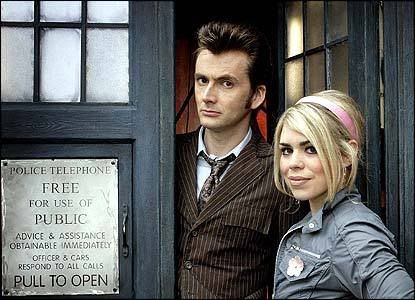
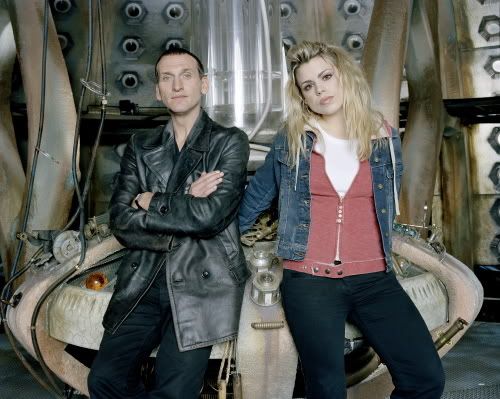
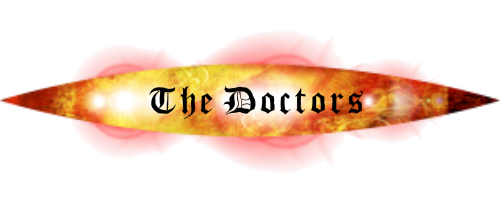
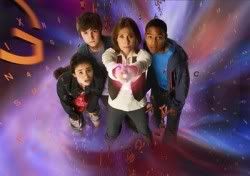
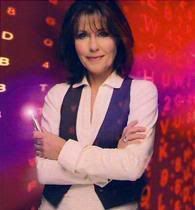
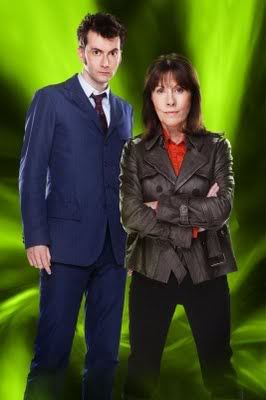
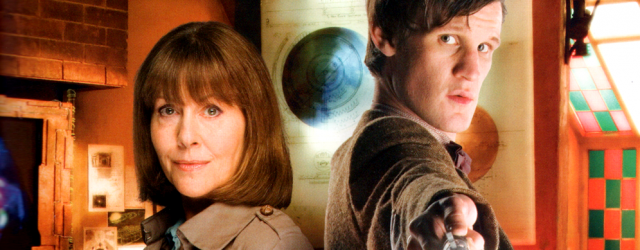
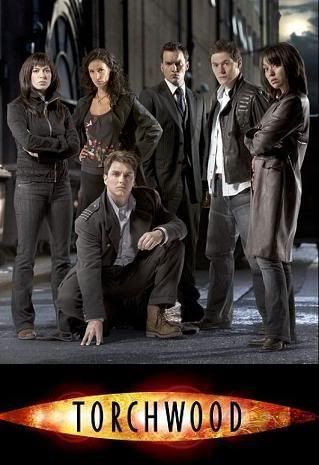
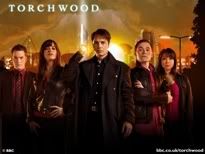

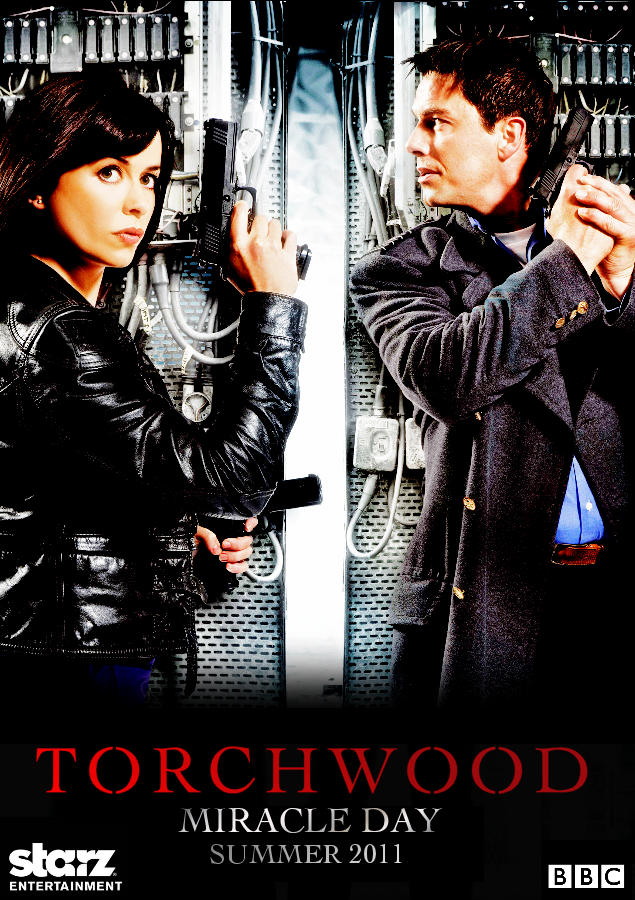


0 comments:
Post a Comment